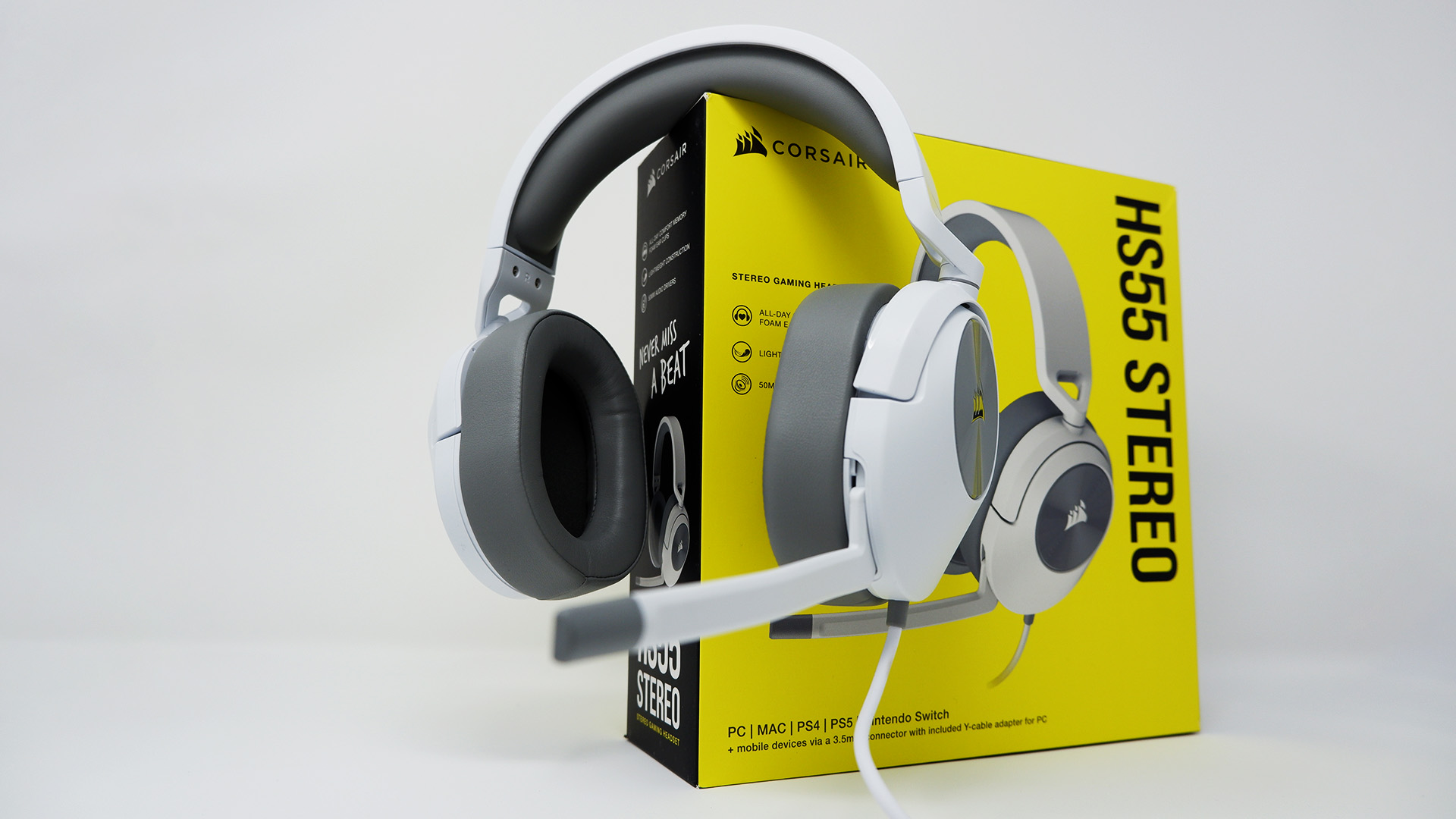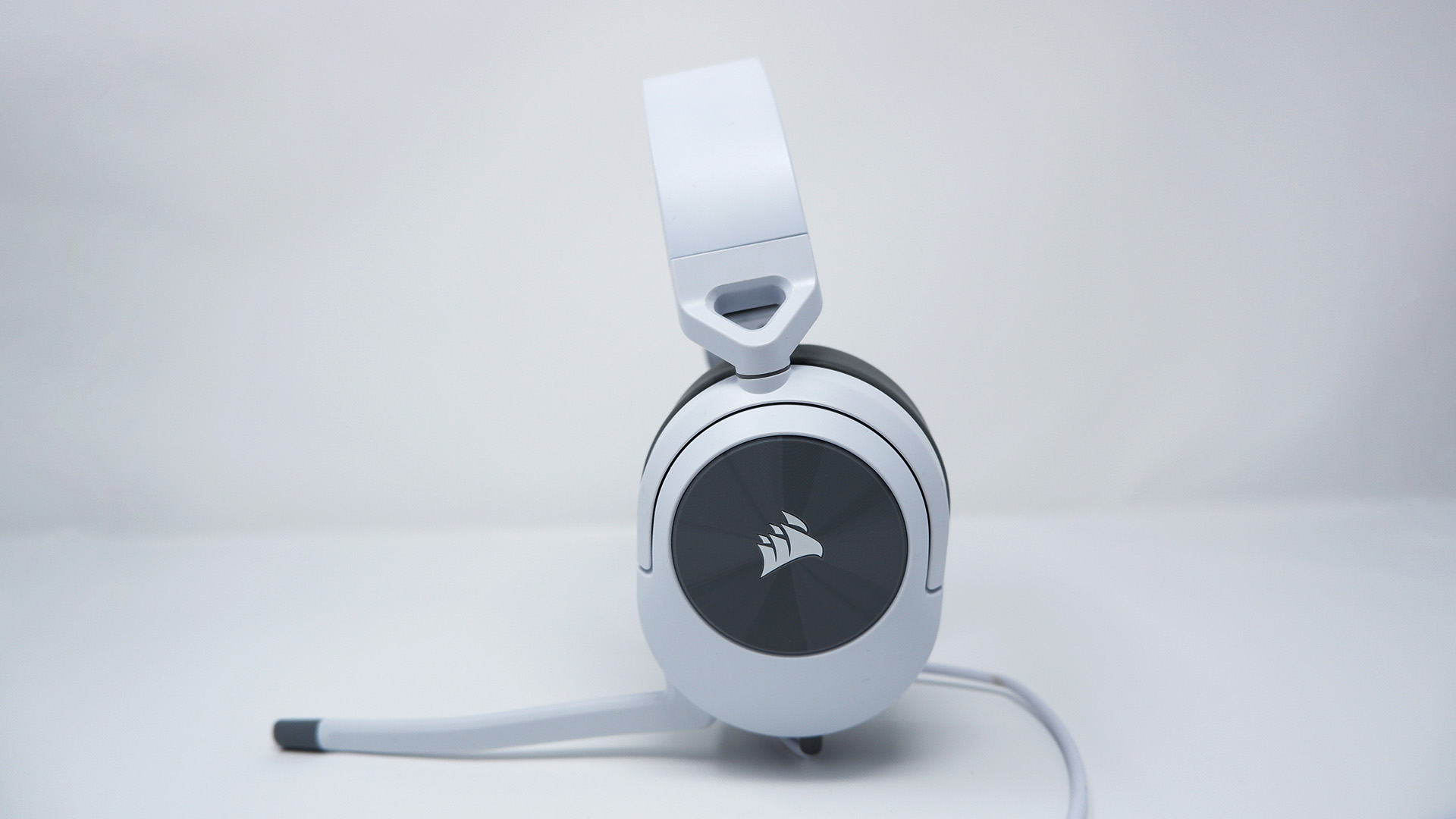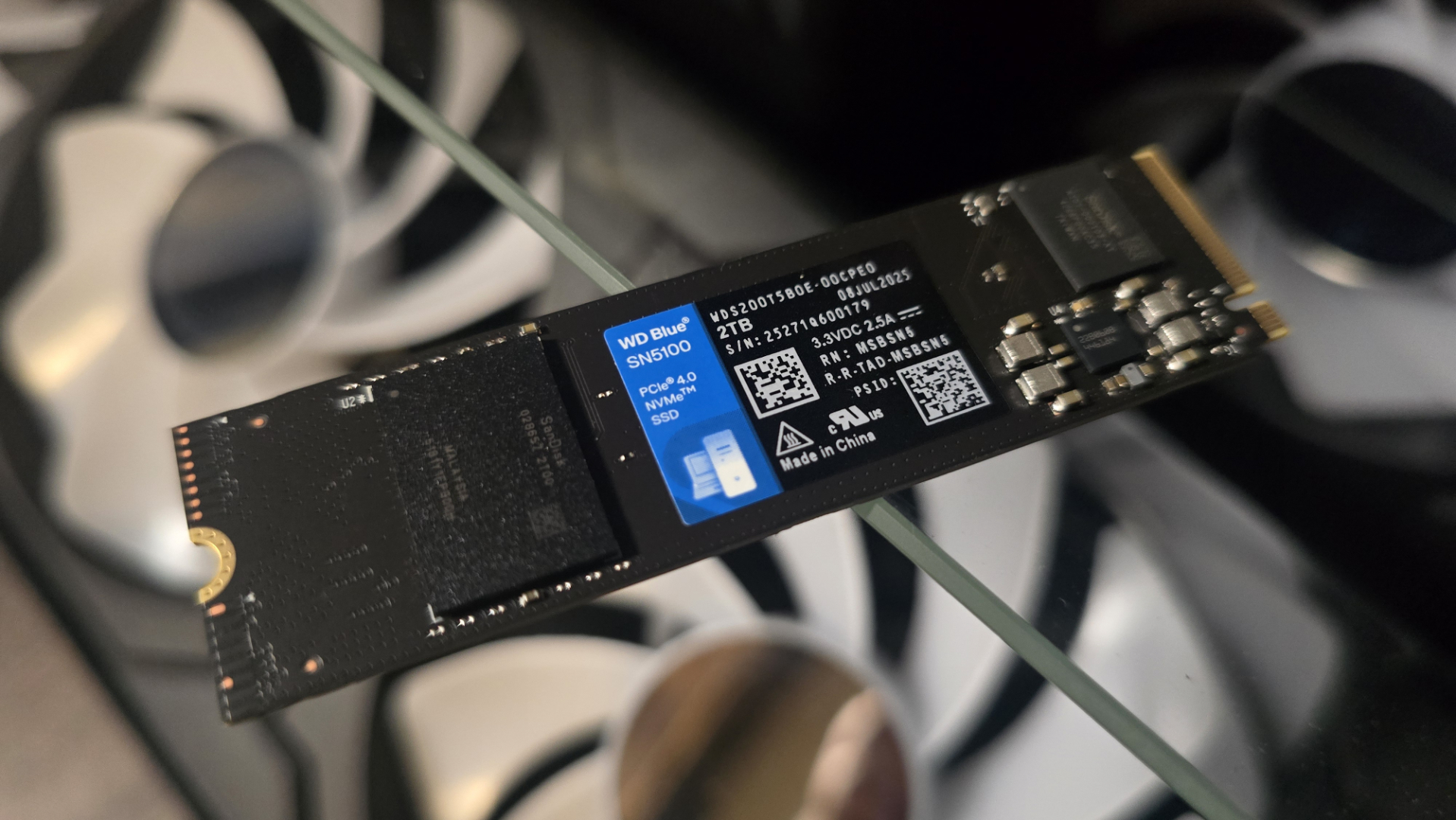Our Verdict
The Corsair HS55 gaming headset is comfortable and sounds decent, but the real star of the show is the excellent microphone.
For
- Superb microphone quality
- Flip-up mic arm
- Light and comfortable
- Good value
Against
- Mic arm can be fiddly at times
- Older HS50 feels a touch more premium
PC Gamer's got your back
Many moons ago, Corsair released the HS50 budget gaming headset, and I was pretty impressed with the value on offer and decent audio quality. Now I've been trying out its new and improved version, the Corsair HS55, and they're similarly impressive for a $60 pair of cans. Though they also face sterner competition.
The $60 HS55 Stereo is materially very similar to the $50 HS50 when it comes to tech specs: it's powered by 50mm drivers capable of delivering a 20–20,000Hz frequency response, and the microphone appears as much a match too. However, there are a few key differences that might make you want to consider the HS55.
Note: there are also HS55 Surround headphones for a little more cash, but this review solely focuses on the cheaper Stereo version.
Back to the review and the HS55 headset is much comfier than Corsair's previous budget models. The plush earcups on the HS55 make for a stark comparison to the HS50's stiff and unbudging foam. The HS55 is also lighter, at 284g, which has a big impact on comfort over long periods. I wore this pair for the better part of a week, 8 hours a day, and I didn't feel the urge to throw them off at any point. They can be a little sweaty on hot days due to the leatherette material they're covered in, but that's a pretty common drawback among gaming headsets in this price range.
The biggest shake-up is the microphone arm, which is now attached permanently to the HS55's left earcup and can be flipped up and out of the way if no longer needed. This is definitely an improvement over the previous HS50, which had a removable mic via 3.5mm jack. Don't judge me, but I've lost my fair share of headset microphones in my career, but I'm not a huge fan of leaving the mic in front of my face all day when it's not in use. A flip-up mic is a much better option, so glad to see one make the cut with the HS55.
I will say that this mic isn't quite as convenient as some others, however. My colleagues said it came through a little quiet in meetings, which wasn't much of an issue as the flexi-arm allows you to bend it a little closer to your face. However, once bent into place, I found it tends to catch my hair and rest against my face a little once flipped up. It's a small thing, but it makes it just a little bit fiddlier than other headsets I've tested.
The microphone sounds great, anyways, and that's what really counts here. I'm really impressed with just how clear the HS55's microphone is: the subtle tones and nuance of my voice's luscious timbre (in my opinion) come through accurately in testing, which you can listen to below. There's a surprising level of clarity in this mic, even in the lower ranges, and it's a really great solution for a budget headset.
Keep up to date with the most important stories and the best deals, as picked by the PC Gamer team.
This is a 3.5mm wired headset, however, so just bear in mind that both the microphone and audio quality could be adversely affected by your motherboard's DAC/amp or whatever sound card/external device you plug it into. It shouldn't make a huge difference nowadays, even the cheapest motherboards have relatively decent audio, but worth sparing a thought for your holistic audio setup.
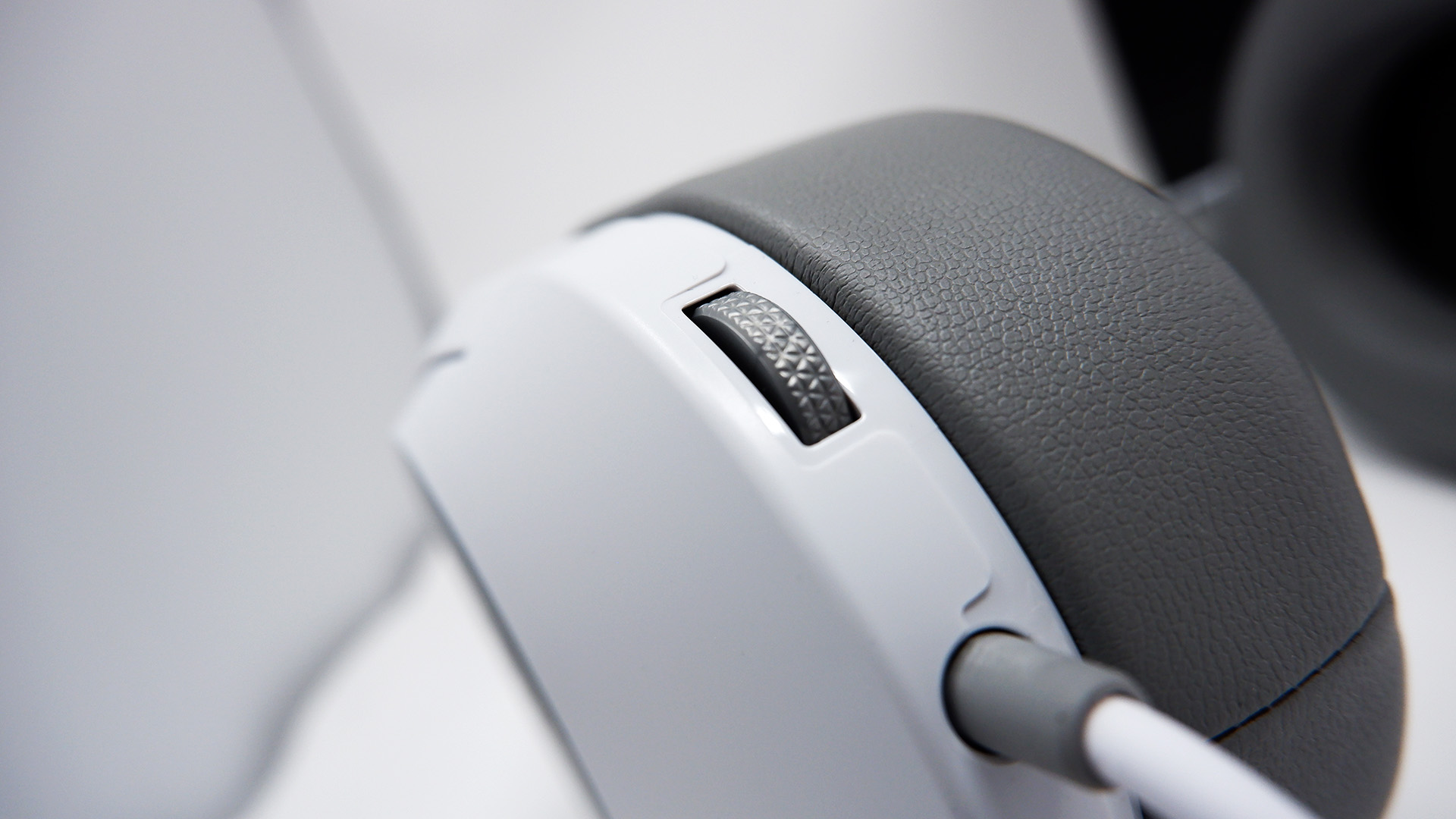
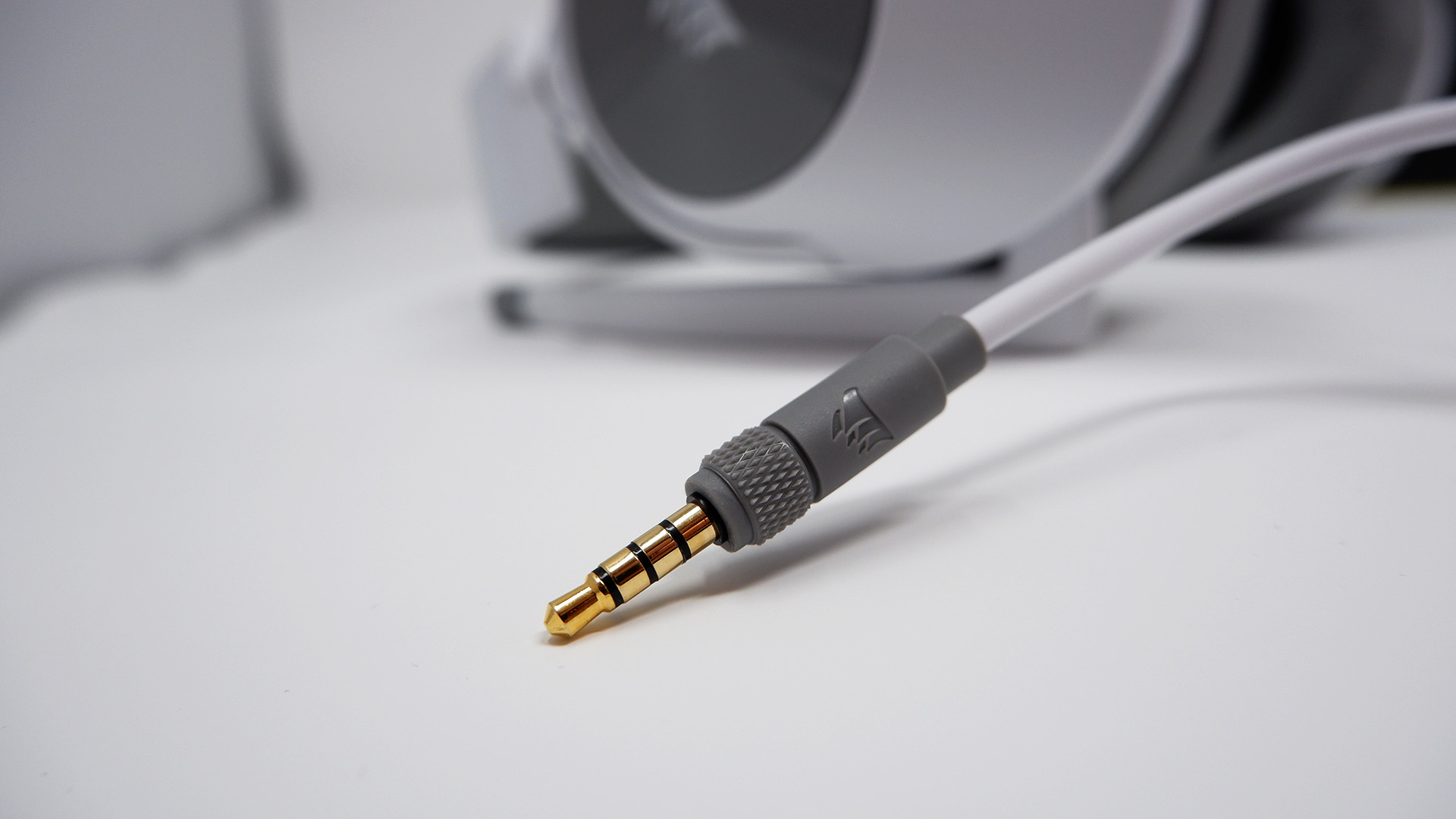
Now onto the audio, and the HS55 isn't quite as impressive in audio output as it is in mic input. It's not like the HS55 sounds bad. It absolutely doesn't. But it does have that definite twinge of cheaper driver sound that is a little too sharp in the higher frequencies.
I'm really impressed with just how clear the HS55's microphone is.
That said, the bass response is surprisingly decent in a budget headset, and I think the key to this is it's not been whacked up to 11 as it often is on many gaming headsets. The bass is a little lacking when it gets down to the murkiest depths of sub-bass, as you don't really feel the thumping bass much with the HS55. Though ultimately this light touch helps prevent some of the all-too-common mash of sounds at the low-end that can make a budget gaming headset a real nightmare to listen to music on. That doesn't happen with the Corsair HS55, and it's not a bad pair for listening to some tunes.
It's primarily a gaming headset, though, and it performs better in this regard. There's enough definition between the highs, mids, and lows to make out different sounds in-game, and that's key if you, like me, play a game that relies heavily on sound cues to signal danger. I play a lot of Hunt: Showdown, and I didn't feel like I was missing important cues in-game with the HS55 on.
I liked the HS50 for similar reasons, so it seems the same audio concept and tweaks have been pulled through to the HS55.
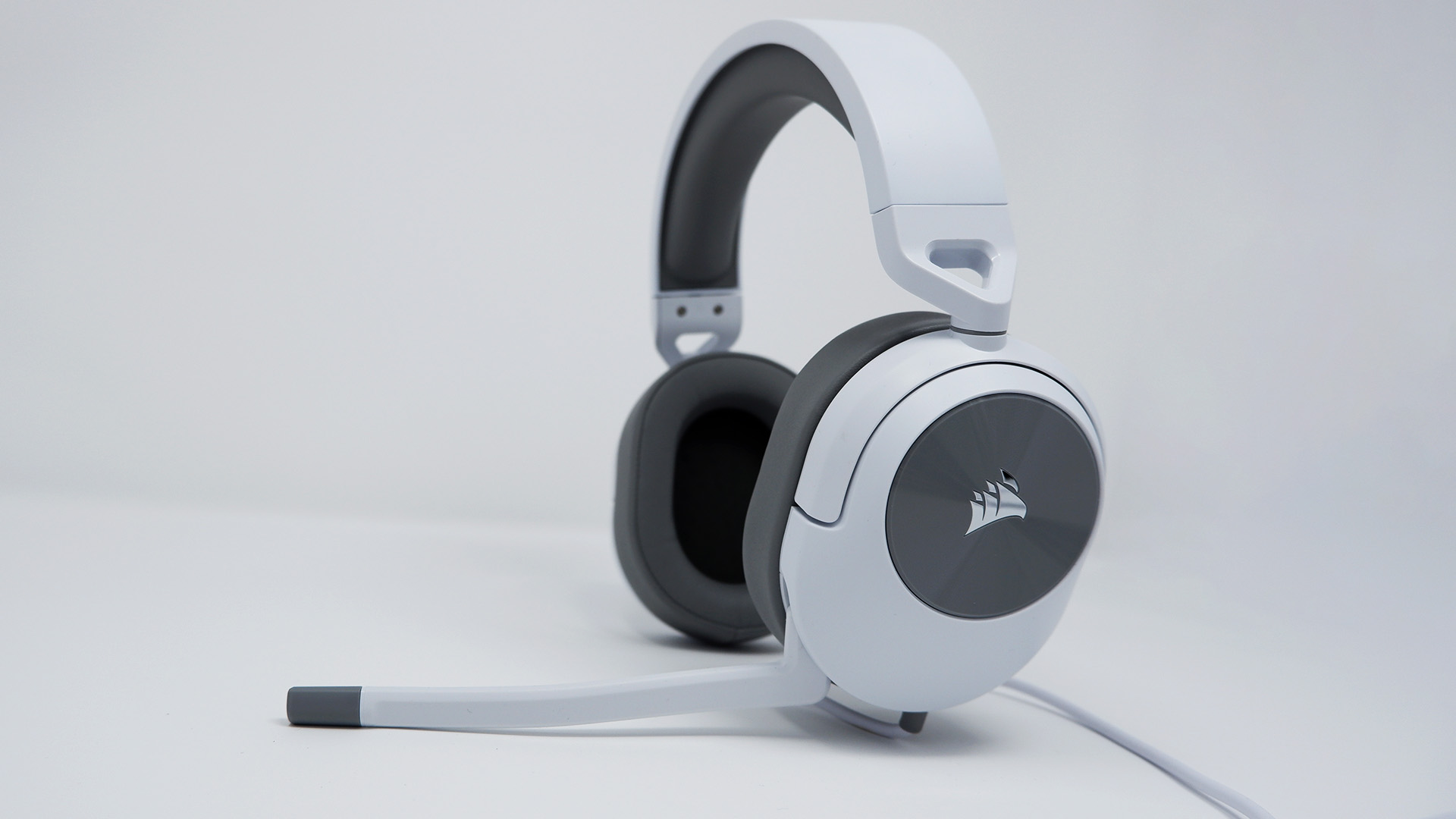
You're getting a comfier and lighter headset in the HS55 over the HS50, and ultimately I feel it's worth the slight price bump for those improvements. The HS55 feels a little cheaper than the HS50, however, with more of a plasticky feel to it. Thankfully it still feels robust and is clearly well put together nonetheless.
But Corsair's own is far from this headset's only competition. You've Razer's Kraken and BlackShark V2 X cans, which both make for a good contest, and HyperX can be found selling a few models for roughly the same price, including the Cloud II when on offer. That's stiff competition, though the Corsair delivers enough to warrant consideration by any gamer looking to pick up some new cans.
The microphone is the real star here. It's superbly clear and offers a great end result. You shouldn't struggle to be heard on Discord or in chat in-game, and you won't be that player with the muffled and scratchy microphone no one wants to play with. While the mic's design isn't quite bang-on how I'd like it, it's both convenient and sounds great. That really puts the HS55 in contention at this price.
The Corsair HS55 gaming headset is comfortable and sounds decent, but the real star of the show is the excellent microphone.

Jacob earned his first byline writing for his own tech blog, before graduating into breaking things professionally at PCGamesN. Now he's managing editor of the hardware team at PC Gamer, and you'll usually find him testing the latest components or building a gaming PC.
